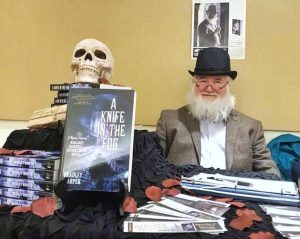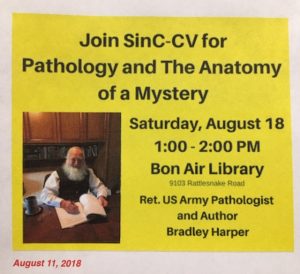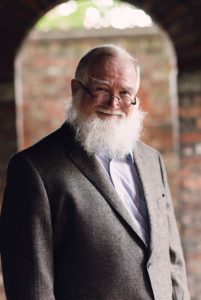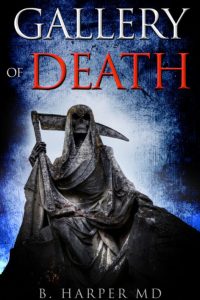VL: I’ve often said that I’ve never met a boring writer. Here to prove that point is my interview with Bradley Harper, mystery writer and so much more!
VL: Let’s start with your debut novel, A Knife in the Fog. I loved it! I have been a fan of Sherlock Holmes mysteries since my college days, and when I read your book I found you had the tone spot-on. You evoked the time and the place in a way that took me there—which is no small feat. What drew you to writing a murder mystery in the first place?
BH: Doctors love mysteries in general, as the diagnostic process is much like solving a mystery. You collect data points and, after testing various hypotheses, arrive at a plausible diagnosis. A Pathologist does practically nothing else. Also, I fell in love with the Holmes stories the summer I discovered them at age 13. If you’re going to spend hundreds or thousands of hours writing a novel, it should be in a genre you know and love.
VL: So that’s why you are drawn to mysteries, and why this sort of mystery, but how did you come up with this particular plot?
BH: I discovered the four-year gap between the first and second Holmes stories, and that the Ripper murders occurred in the middle of that period. I became excited at the idea of a novel involving Doyle in the hunt for the killer, and explaining why he returned to Holmes after being soured on crime fiction due to his meager payment (twenty-five pounds), for the first one.
VL: I admire the way you combined real people—i.e., Doyle, his real-life influence Joseph Bell, and Margaret Harkness, a real woman of the time—and wove this wonderful fiction around them.
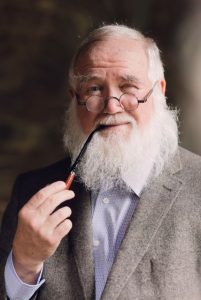
BH: I’m glad I found Miss Harkness. She was an author and Suffragette who lived in the East End of London for a while to do research for her novels featuring the working poor.
VL: I like her character a lot. I hope to see more of her! But let’s change gears here, and look at your work before you retired and started writing fiction. Where did you attend med school?
BH: Uniformed Services University of the Health Sciences, 1979-83.
VL: Well, that answers my next question about whether your medical training preceded joining the Army.
BH: I started as an Airborne Qualified Infantry Officer and at one time was a platoon leader in a Mechanized Infantry Battalion. Due to the draw down after Viet Nam, I was transferred to the Transportation Corps and ran a motor pool in Izmir, Turkey, as part of a NATO Headquarters there. One of the four walls of my motor pool was the remnant of a Roman aqueduct. Thirty-seven years later, I retired as the Deputy Assistant Surgeon General for the US Army in the Pentagon.
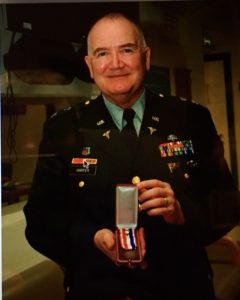
BH: During my Army years, I enjoyed many extraordinary experiences. This picture was taken shortly after receiving an award from the Knights of Malta for my assistance to the Italian Army in their preparation for deployment to Afghanistan as part of a NATO mission. The advanced first aid course I helped found has since become mandatory training for all Italian land forces prior to deployment, and was recently taught to the Italian Presidential security detail.
I also had the unique experience of serving as the acting commander of the US Army Hospital in Heidelberg, Germany, on the fiftieth anniversary of General Patton’s death there. I presided over the commemoration ceremony involving both US military and local German dignitaries.
VL: Wow. Quite a progression! Congratulations. But hold on. If you didn’t join the Army to go to medical school, why did you join?
BH: My draft number was 84, so I knew as soon as I graduated from college I was going into the military. I decided to take an ROTC scholarship for my last two years. (My original goal was to be a high school Spanish and History teacher). One day relatively early in my service I went on sick call for an injured ankle, and the doctor who saw me was such an unpleasant person I decided that I and my soldiers deserved better care. So I went to med school with the goal of seeing to it that soldiers and their families got the care they deserved.
VL: What made you stick with it?
BH: I discovered I liked being part of something larger than myself, and found living abroad an amazing experience.
VL: What were the best and worse things about your time in the military?
BH: I enjoyed being reassigned every two to three years into a new job. That allowed me to take on various roles and to develop a wide skill set. Frequent moves did limit my social circle, however, and I didn’t have what I would consider a close friend as an adult until after I retired. Fortunately, I had the love and support of Chere, my wife of 45 years.
BH: In the five years since I retired, she has joined me in my Santa gigs as well. She’s wonderful.
VL: When you addressed the Central Virginia Chapter of Sisters in Crime—an excellent presentation, by the way—you mentioned having a $1.5 million bounty on your head at one time. Tell me about that.
BH: While serving as the Command Surgeon for U.S. Army South, I spent time in Colombia overseeing a joint training course with the Colombian Army. That’s when the bounty was offered.
VL: I never expected to meet anyone wanted-dead-or-alive!
BH: You still haven’t! The bounty was for anyone who could deliver me to the FARC alive. As the highest ranking U.S. officer in the area, I was considered very valuable as a live hostage to ransom. (Offer no longer valid, by the way.)
VL: Hmmm. If there’s no longer a profit in kidnapping you, I might as well get on with the interview. You are Board Certified in Anatomic and Clinical Pathology, and you said you’ve conducted over two-hundred autopsies. What sorts of forensic autopsies did you perform that subsequently informed your writing?
BH: All military pathologists undergo forensic training. We are often sent to remote locations, and are the only game in town. I am not Board Certified in Forensics, however, so any cases which might go to trial would be sent to the nearest military forensic specialist. The cases I did were crib deaths, training accidents, motor vehicle accidents, suicides, or people who died on the job unexpectedly. Two suicides by standing in front of a train and one accident involved being run over by light rail informed my writing in one of the final scenes in A Knife in the Fog. I was involved in one case while in Germany which had mixed jurisdiction between the German civil authorities and the US, so I attended the autopsy performed by my German colleague, and my notes were used to prosecute the US serviceman involved.
VL: You’ve told us quite a bit about your work as Santa. But I’m curious about something you mentioned in the SinC-CV presentation. What prompted you to volunteer in Galicia? Apparently it wasn’t a one-off. Do you do this annually? How long does that take? Are you actually walking the pilgrims’ route?
BH: After I retired from the Army I walked the Camino to Santiago de Compostela in Galicia, Spain. It is an ancient pilgrimage route begun in the ninth century, and millions have walked The Way to the bones of St. James as an act of atonement or contrition. I did it to give me some time to ponder what direction my life would take after thirty-seven years in the military. After a transformative experience I have written about and shared on a local radio program—which is too long to go into here—I wanted to give back, and to help others realize their dreams. I speak five languages other than English, and being functional in so many tongues allowed me to assist pilgrims from most of Europe and, of course, the English-speaking world. I got back as much as I gave. This is the first year I have not volunteered after five consecutive summers. These were fifteen-day stints—with my wife—first in the pilgrim office, and later as a hospitalero, or host, in a pilgrim hostel.
VL: Surely you realize that mentioning a transformative experience more or less in passing means I’m likely to come back to you for more about that! But forging ahead for now, what about your personal life? Do you have hobbies or pets?
BH: I read incessantly, and swim for fitness when my shoulder allows. No other hobbies to speak of, and no pets. I travel a lot, still. Perhaps when I go from the “go-go” phase of life to the “go-slow” or the “no-go,” I’ll add a pet to my life.
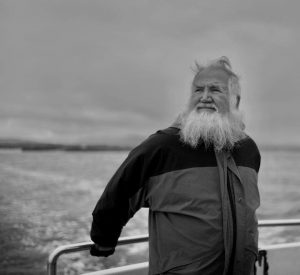
VL: I’d like to end with info on your future project(s). What are you working on now?
BH: I am fortunate to have a two-book contract with Seventh Street Books, and am involving my heroine from book one, Margaret Harkness, in trying to stop an assassination attempt on Queen Victoria during her Diamond Jubilee ceremony. It will be titled Queen’s Gambit.
VL: When might fans hope to have Queen’s Gambit in hand?
BH: It’s scheduled for release in October of 2019, on the one-year anniversary of the debut of my first book.
VL: What, if anything, would you like to share with other writers about how you balance family life, Santa duty, volunteer activities, and your writing life?
BH: I don’t multi-task. I don’t believe anyone can accomplish their best work unless they are entirely focused on the task in front of them. So when I write, I go all-in. I do ponder plot points and issues when I’m not writing, but when I am playing Santa, for example, I am totally focused on the people who have come to see Santa. These encounters are brief, but if I can communicate to them that I genuinely wish them well, they will remember that for a long time after.
The best advice I got in med school was: when the body is tired, work the mind. When the mind is tired, work the body. Eat well, walk, laugh, engage with those around you, be grateful for every day, and life will sort itself out.
VL: Let’s end with those words of wisdom! Thank you, Brad, for sharing so generously of your time, your experiences, and your thoughts. I look forward to wrangling another blog sometime down the road!
Follow Bradley Harper online at bharperauthor.com. You will find pictures and notifications of appearances, as well as bits of off-beat information about Victorian England, forensics, and whatever strikes his fancy! You can even get info about Harper’s compilation of four short stories.
